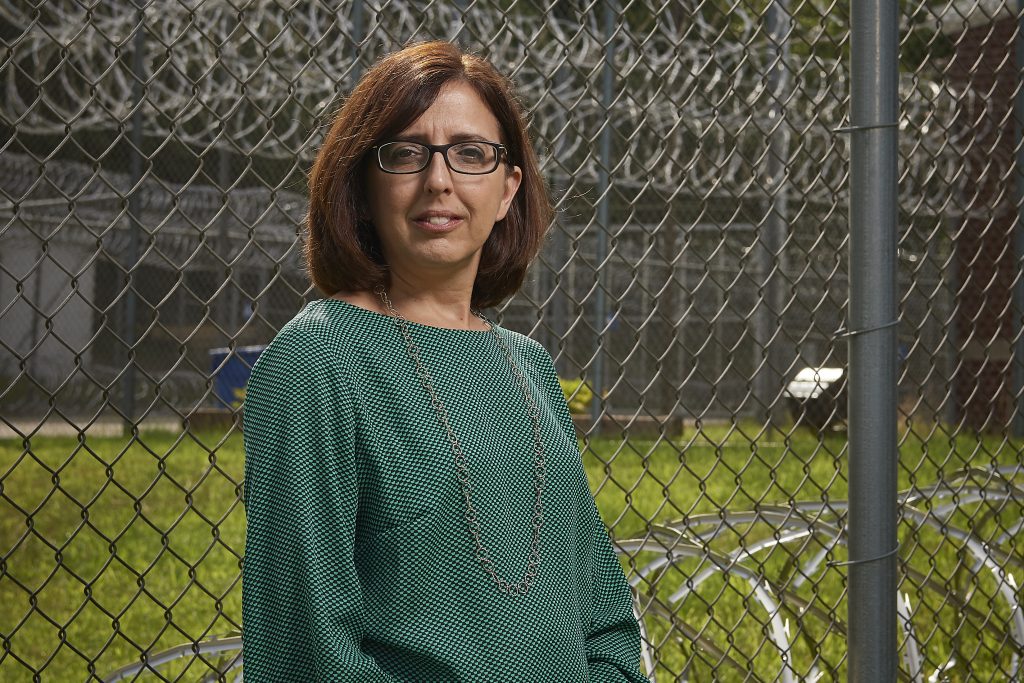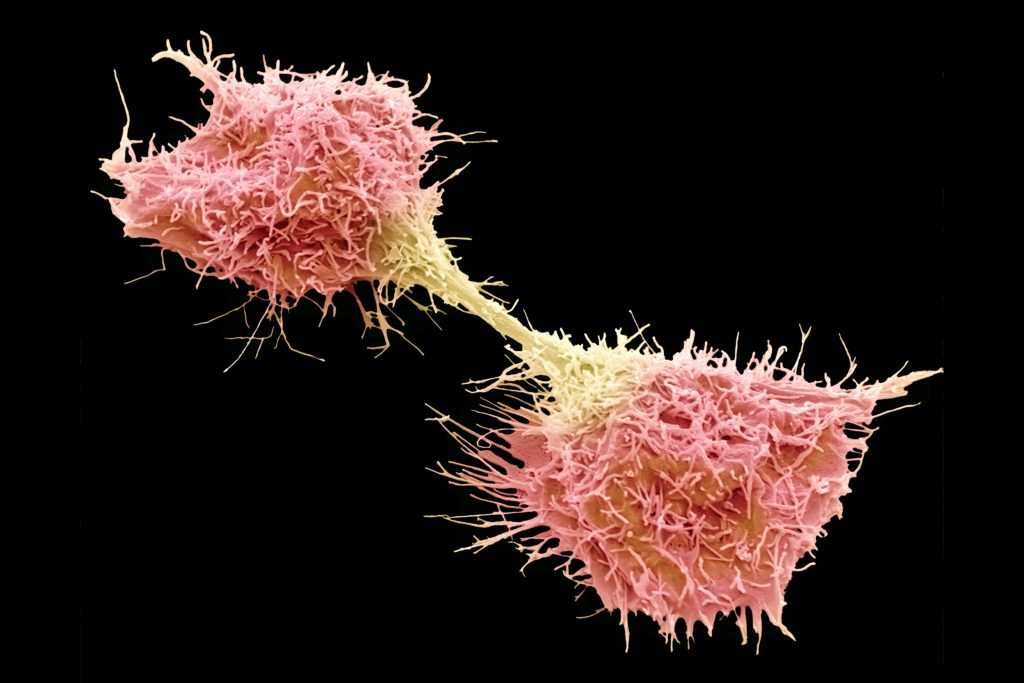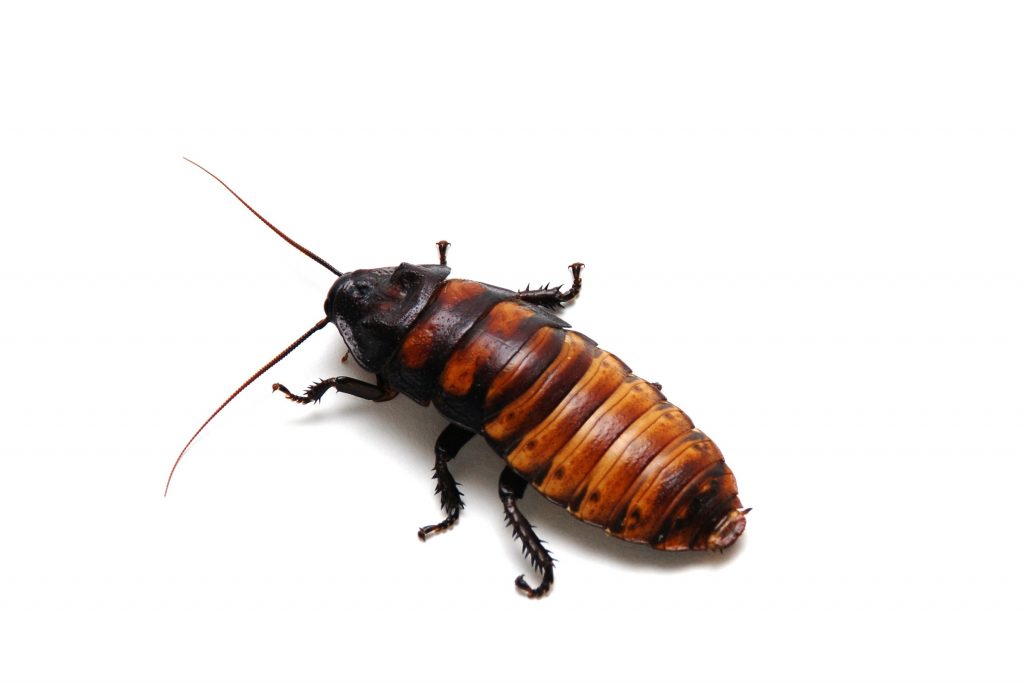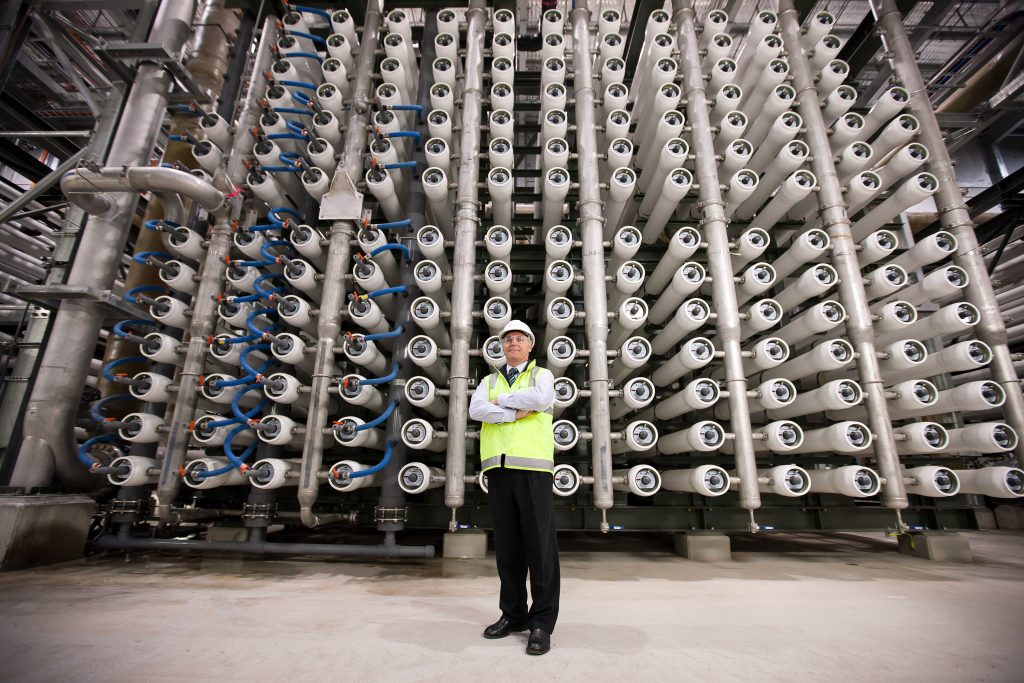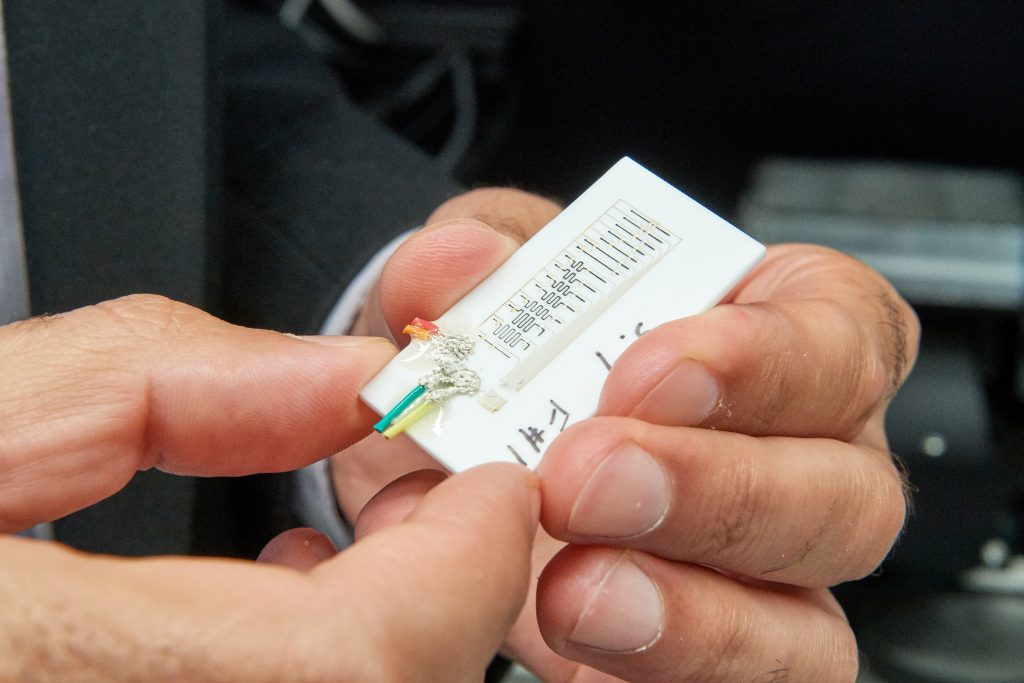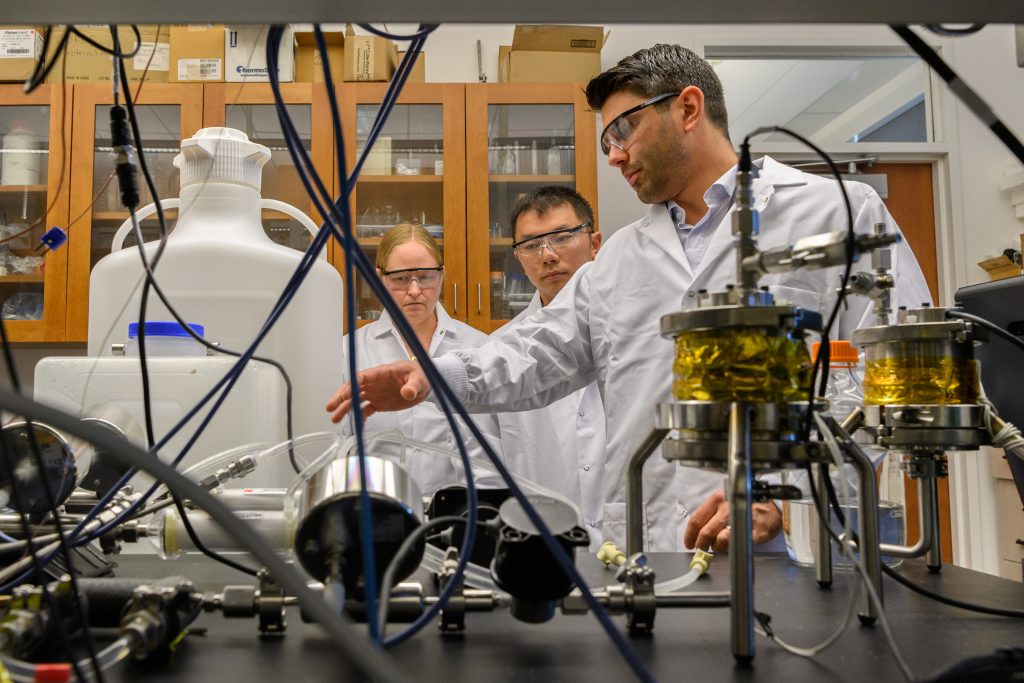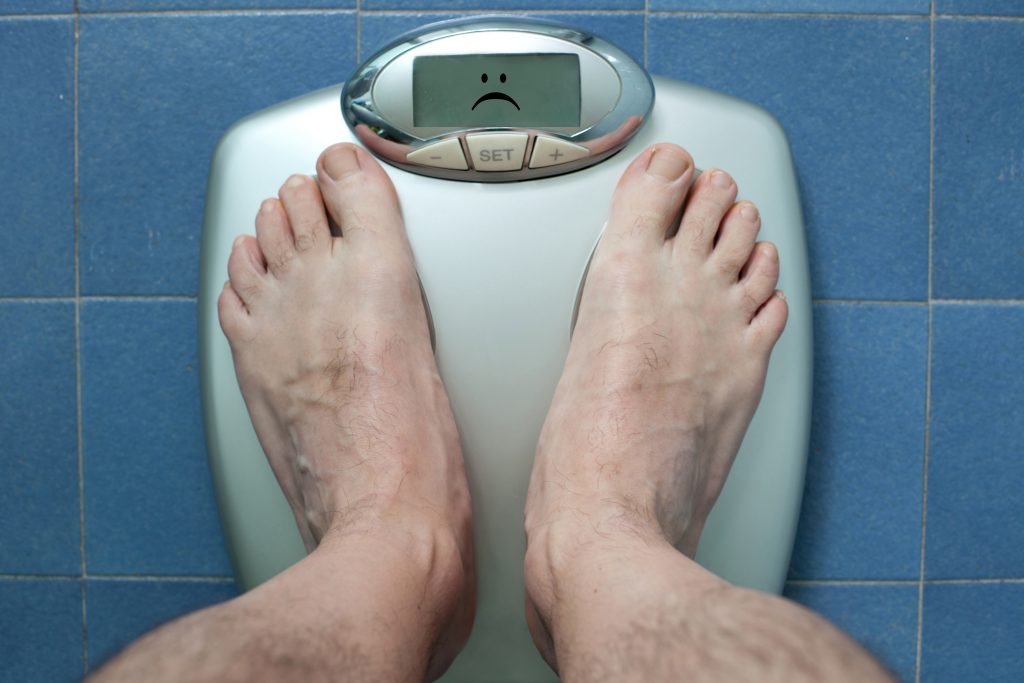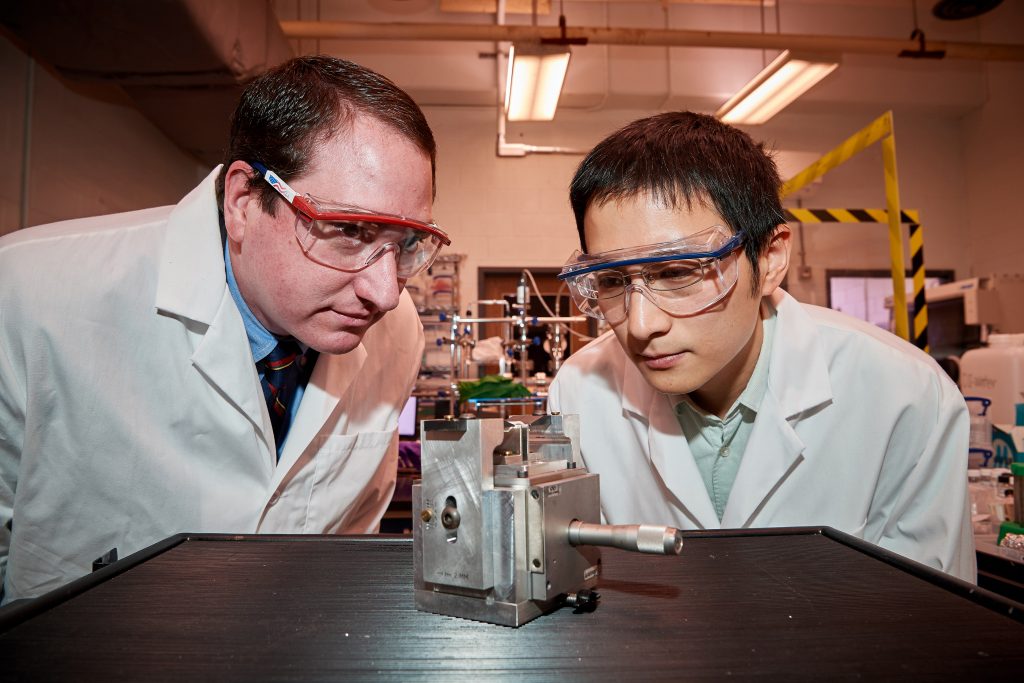Colin Poitras
Author Archive
Coveted Class: Politics of Crime and Justice
Kimberly Bergendahl wants students to see how the law works in real life, so she introduced community-based service programs to her curriculum, including the opportunity to tutor inmates at a correctional institution.
November 9, 2018 | Colin Poitras
Stopping the Resistance of Cancer Cells to Treatment
UConn researchers have discovered molecules that could make cancer cells more vulnerable to chemotherapy.
September 24, 2018 | Colin Poitras
A Cyborg Cockroach Could Someday Save Your Life
UConn engineers’ microcircuit could improve control of futuristic biobots.
September 6, 2018 | Colin Poitras
New Findings May Lead to Sea Change in Desalination Technology
University of Connecticut scientists use electrospray to produce smooth reverse osmosis membranes with tunable thickness.
August 16, 2018 | Colin Poitras
‘Smart’ Machine Components Alert Users to Damage and Wear
UConn and UTRC scientists are using advanced additive manufacturing to create novel wear sensors that can be embedded into machine parts.
July 30, 2018 | Colin Poitras
Improving Outcomes for Serious Knee Injuries
A UConn researcher finds that including psychological interventions in the rehabilitation process can boost recovery from an ACL injury.
June 20, 2018 | Colin Poitras
UConn Researchers Lead National Effort to Improve Drug Manufacturing
Researchers in the School of Pharmacy are adapting the techniques of continuous manufacturing used in the electronics, chemical, and automobile industries to the production of complex drugs.
May 17, 2018 | Colin Poitras
Perched on a Plateau: Why Today’s Rapid Weight Loss Diets Always Seem to Fail
Professor of pharmacy practice C. Michael White discusses what happens when you diet too hard, and suggests a more sustainable approach to losing weight.
May 14, 2018 | Colin Poitras
Strain Improves Performance of Atomically Thin Semiconductor Material
UConn materials scientists have shown conclusively for the first time that the properties of atomically thin materials can be mechanically manipulated to enhance their performance. The finding could lead to faster computer processors and more efficient sensors.
May 10, 2018 | Colin Poitras
Spider Silk Key to New Bone-Fixing Composite
A UConn materials science team has developed an innovative composite for healing broken load-bearing bones based on a protein found in the silk fibers spun by spiders.
April 19, 2018 | Colin Poitras
